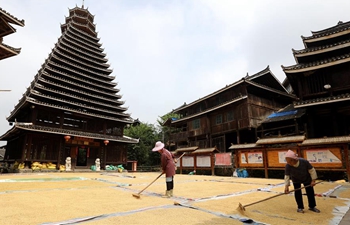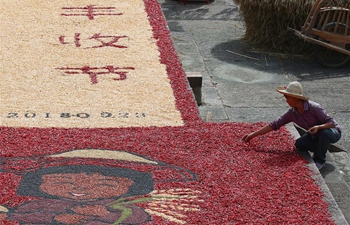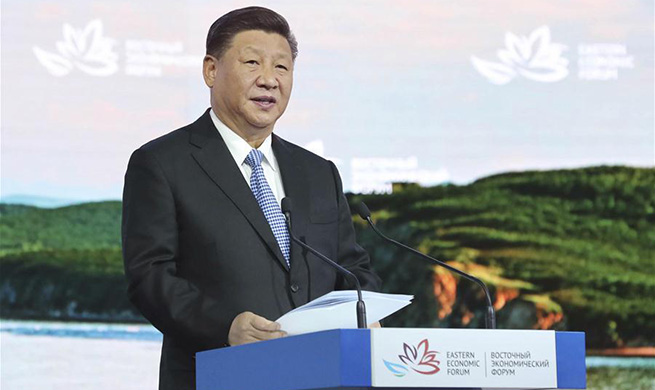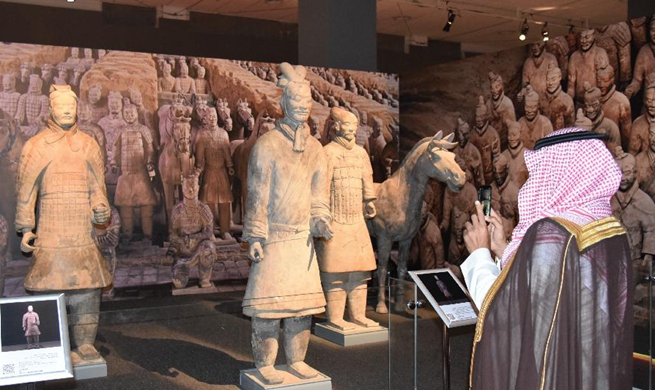by Peerzada Arshad Hamid
NEW DELHI, Sept. 13 (Xinhua) -- The 10-day celebrations of Ganesh Chaturthi festival began Thursday across India, as Hindus mark the birth anniversary of Lord Ganesha.
Observance of the festival is marked with installation of Ganesha clay idols at home, or publicly on elaborate makeshift stages.
During the festival, devotees chant Vedic hymns and sacred Hindu texts, offer prayers and observe fasting.
"The festival is celebrated as we see lord Ganesha the God of new beginnings and the remover of obstacles," said Atul Bhatanagar, a Mumbai resident. "We also see lord Ganesha as the god of wisdom and intelligence."
Offerings in the shape of sweets from the daily prayers are distributed among the devotees.
Reports from southern Telangana state said that to make the Ganesh Chaturthi, a special Laddu (a popular Indian dessert) weighing 580 kg has been transported to Hyderabad's Film Nagar Wednesday evening.
The Laddu will be brought to Khairatabad Ganesh Mandap later in the day for distribution among the devotees after the completion of special prayers.
The huge Laddu has been prepared by a confectionary firm in Tapeswaram of neighboring Andhra Pradesh.
PVVV Mallikarjuna Rao who prepared the Laddu told media it was made up with 220 kg of sugar, 145 kg of clarified butter, 175 kg of Bengal gram, 25 kg of Cashew nuts, 13 kg of almonds, 3 kg of cardamom, one kg of green camphor.
Preparations for the Ganesh Chaturthi festivities begin months in advance. Makeshift stages are usually made days ahead of the actual festival often being funded either from donations by local residents or hosted by business organizations.
The making of the idols begins much in advance and is brought to makeshift stages on the day or a day before the festival begins.
The stages are decorated with dazzling lights and garlands.
"At home, the festival preparation includes booking a Ganesh idol, purchasing items of worship," said Amit Khausal, a devotee. "Then a place is chosen in the house where the idol is kept. The idol is worshiped in the morning and evening with offerings of flowers, jaggery and coconut flakes wrapped in rice flour dumplings."
The idols are made by local artisans in various Indian states. Thousands of people make out their living from making the idols for this specific festival, Khausal said. "The idols of different sizes are kept available for the sale."
The festival ends on the 10th day after start, during which the idol is carried in a public procession with music and group chanting and later on immersed in a nearby waterbody or a river or ocean.
The immersion of an idol is called the Visarjan.
In Mumbai, India's financial capital, around 150,000 statues are immersed annually, reports said. The clay idol dissolves in water.
Environmentalists advocate the immersion of only traditional clay idols, citing idols made of material other than clay cause pollution in water bodies.













